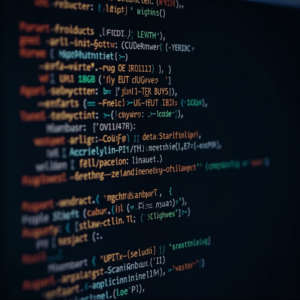
Introduction to CodeIgniter Security
CodeIgniter is a popular PHP framework used for building web applications. While it provides a robust and efficient way to develop applications, security is a major concern that should not be overlooked. In this article, we will discuss the best practices for securing your CodeIgniter application and protecting it from potential threats.Security is an essential aspect of web development, and it’s crucial to take necessary measures to prevent unauthorized access, data breaches, and other malicious activities. By following the best practices outlined in this article, you can ensure that your CodeIgniter application is secure and protected from potential threats.
Input Validation and Sanitization
Input validation and sanitization are critical components of web application security. CodeIgniter provides a range of tools and libraries to help you validate and sanitize user input. It’s essential to validate user input to prevent SQL injection, cross-site scripting (XSS), and other types of attacks.CodeIgniter’s Form Validation library provides a simple and effective way to validate user input. You can use this library to validate form data, such as usernames, passwords, and email addresses. Additionally, you can use the HTML Purifier library to sanitize user input and prevent XSS attacks.

Authentication and Authorization
Authentication and authorization are critical components of web application security. CodeIgniter provides a range of libraries and tools to help you implement authentication and authorization in your application. It’s essential to implement robust authentication and authorization mechanisms to prevent unauthorized access to your application.CodeIgniter’s Ion Auth library provides a simple and effective way to implement authentication in your application. You can use this library to create users, assign roles, and manage access to your application. Additionally, you can use the ACL (Access Control List) library to implement authorization and control access to your application’s resources.
SQL Injection Protection
SQL injection is a common type of attack that can compromise the security of your web application. CodeIgniter provides a range of tools and libraries to help you protect your application from SQL injection attacks. It’s essential to use prepared statements and parameterized queries to prevent SQL injection.CodeIgniter’s Query Builder library provides a simple and effective way to build and execute SQL queries. You can use this library to create prepared statements and parameterized queries, which can help prevent SQL injection attacks. Additionally, you can use the Active Record library to interact with your database and reduce the risk of SQL injection.
Cross-Site Scripting (XSS) Protection
Cross-site scripting (XSS) is a common type of attack that can compromise the security of your web application. CodeIgniter provides a range of tools and libraries to help you protect your application from XSS attacks. It’s essential to validate and sanitize user input to prevent XSS.CodeIgniter’s HTML Purifier library provides a simple and effective way to sanitize user input and prevent XSS attacks. You can use this library to remove malicious code and prevent XSS attacks. Additionally, you can use the CSRF (Cross-Site Request Forgery) library to protect your application from CSRF attacks.
File Upload Security
File uploads can be a security risk if not handled properly. CodeIgniter provides a range of tools and libraries to help you secure file uploads. It’s essential to validate and sanitize file uploads to prevent malicious files from being uploaded to your server.CodeIgniter’s File Upload library provides a simple and effective way to handle file uploads. You can use this library to validate and sanitize file uploads, and prevent malicious files from being uploaded to your server. Additionally, you can use the MIME Type library to verify the type of files being uploaded and prevent malicious files from being uploaded.
Best Practices for Securing Your CodeIgniter Application
To secure your CodeIgniter application, it’s essential to follow best practices. Here are some best practices to help you secure your application:Use strong passwords and keep them confidential. Use a secure connection (HTTPS) to encrypt data transmitted between the client and server. Keep your application and its components up-to-date with the latest security patches. Use a Web Application Firewall (WAF) to protect your application from common web attacks. Monitor your application’s logs and analytics to detect and respond to security incidents.
Conclusion
In conclusion, securing your CodeIgniter application is crucial to protect it from potential threats. By following the best practices outlined in this article, you can ensure that your application is secure and protected from common web attacks. Remember to always validate and sanitize user input, implement robust authentication and authorization mechanisms, and use prepared statements and parameterized queries to prevent SQL injection.Additionally, use a secure connection (HTTPS) to encrypt data transmitted between the client and server, keep your application and its components up-to-date with the latest security patches, and monitor your application’s logs and analytics to detect and respond to security incidents. By following these best practices, you can help ensure the security and integrity of your CodeIgniter application.

